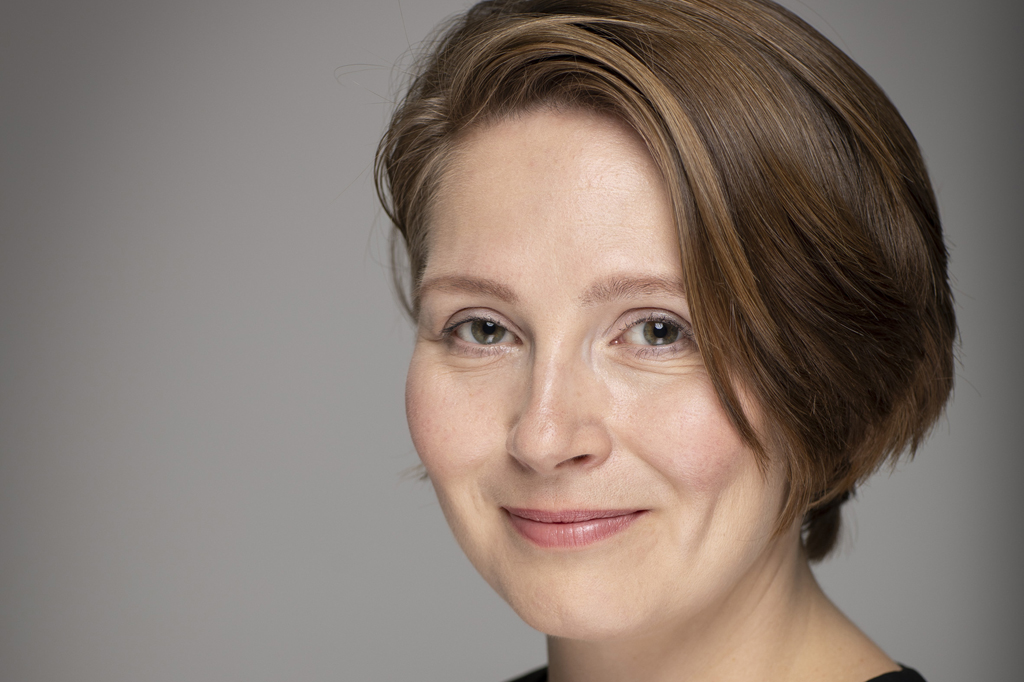
The Norwegian mezzo-soprano Ann-Beth Solvang studied at the Rogaland Conservatory of Music in Stavanger and at The State Academy of Operatic Art in Oslo.
She was a member of the International Opera Studio at the Staatsoper Hamburg from 2006-08. 2008-11 she was a member of the ensemble at the Staatsoper Hamburg. Her repertoire there included Hänsel in „Hänsel und Gretel“, Cherubino in „Le nozze de Figaro“, Mercédès in „Carmen“, among many others.
Guest appearances have lead Ann-Beth Solvang to the Zurich Opera, Opéra national de Paris, Bavarian State Opera in Munich, Teatr Wielki in Warsaw, Bergen National Opera, Norwegian National Opera in Oslo, Teatro Regio in Turin, as well as several times to the Hamburg State Opera, Théâtre du Châtelet in Paris, Innsbruck Festival of Early Music and Theater an der Wien.
She has added roles such as Erda in „Das Rheingold“, Fricka in „Die Walküre“, Waltraute in „Götterdämmerung“, Bianca in „Eine florentinische Tragödie „, Orlovsky in „Die Fledermaus“, Maddalena in „Rigoletto“, La Zelatrice in „Suor Angelica“, Hippolyta in „A Midsummer Night’s Dream“, Ursule in „Béatrice et Bénédict“, Der Trommler in „Der Kaiser von Atlantis“, Page in „Salome“, Mary in „The Flying Dutchman,“ Ernesto in „Il mondo della luna,“ Argene in „L’Olimpiade,“ Annio in „La clemenza di Tito,“ and Flavia in „Flavius Bertaridus.“
She celebrated a fine success as Minerva and La Fortuna in „Il ritorno d’Ulisse in patria“ under the musical direction of Alessandro De March at the Innsbruck Festival of Early Music, as well as at the Theater an der Wien, where she interpreted Die Königin in the staged version of „Elias“ (Jukka-Pekka Saraste/Calixto Bieito, new production 2019).
Ann-Beth Solvang made her Oldenburg debut in the 17/18 season as Erda in Richard Wagner’s „Das Rheingold.“ Since the beginning of the 18/19 season, she has been part of the ensemble of the Oldenburg State Theater, where she has appeared as Erda in „Das Rheingold“ and „Siegfried“, Marguerite in „La Damnation de Faust“, Sesto in „La clemenza di Tito“, Mrs. Patrick De Rocher in „Dead Man Walking“, Venus in „Venus and Adonis“ and Dido in „Dido and Aeneas“, among others.
In the 2021/22 season, Ann-Beth Solvang could been heard there as Concepción and Ciesca in a new production of „The Spanish Hour“/ „Gianni Schicchi“, as The Foreign Princess in „Rusalka“ and Mother Gertud in „Hänsel and Gretel“.
In a gala concert in November 2021, the artist sang Sieglinde in excerpts from „Die Walküre“ for the first time – a new role that she also performed for the first time in 2022. Ann-Beth is gradually expanding her repertoire with some soprano roles as well, such as the ‚Marschllin’/“Der Rosenkavalier“ or in the future the ‚Ellen Orford'“/Peter Grimes.
Ann-Beth Solvang is a much sought-after concert singer, regularly appearing in concert venues and at festivals throughout Europe. In addition to the standard repertoire, she has had much success as Waldtaube in Schönberg’s „Gurrelieder“, soloist in Gustav Mahler’s „Lied von der Erde“ and in Schubert’s rarely performed „Rosamunde, Fürstin von Zypern“.
She is also one of three co-founders of the successful opera ensemble »Fjosopera» («Opera in the Barn«), which interprets the opera literature in the most amusing manner.
Ann-Beth Solvang has worked with conductors such as Hansjörg Albrecht, Vito Christofaro, James Duddle, John Helmer Fiore, Lawrence Foster, Riccardo Frizza, Rolf Gupta, Michael Güttler, Leo Hussain, Alexander Joel, Philippe Jordan, Alessandro De Marchi, Antonella Manacorda, Andew Manze, Gerhard Markson, Marc Minkowski, Jun Märkl, Kent Nagano, John Nelson, Erwin Ortner, Roberto Paternostro, Kirill Petrenko, Vasily Petrenko, Francois Xavier Roth, Peter Szilvay, Anu Tali, Konstantin Trinks, Peter Valentovic, Hendrik Vestmann, Philipp von Steinaecker and Simone Young.
Numerous recordings have been released with the mezzo-soprano, including Pergolesi’s „L’Olimpiade“ (Sony Classical/Deutsche Harmonia Mundi), songs by the Norwegian composer Eyvind Alnæs (Toccata Classics), the Telemann opera „Flavius Bertaridus“ conducted by Alessandro De Marchi (Sony Classical/Deutsche Harmonia Mundi) and „Six Songs for the Unquiet Traveller“ (Ensemble 2e2m).
